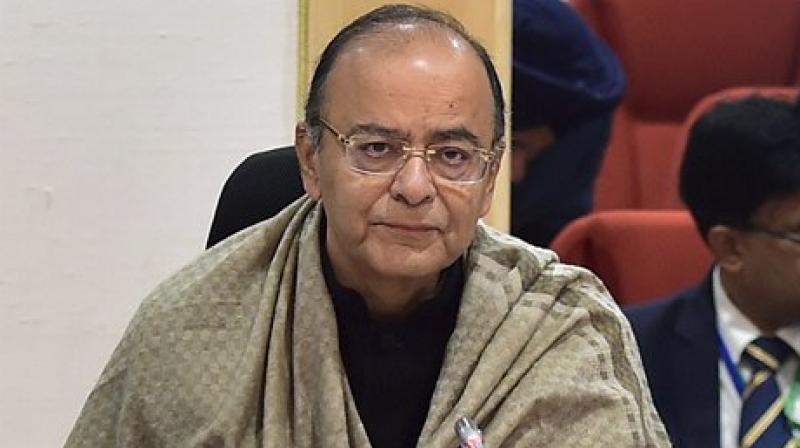GST Council to finalise draft model GST law on Saturday
Council, headed by Arun Jaitley, also likely to finalise definition of 'agriculture' and 'agriculturist'.

New Delhi: The GST Council, which is meeting today, is likely to finalise the draft model GST law including final drafting of the anti-profiteering clause to ensure benefit of lower taxes gets shared with consumers.
The Council, headed by Finance Minister Arun Jaitley and comprising representatives of all states, is also likely to finalise the definition of 'agriculture' and 'agriculturist' as well as constitution of a 'National Goods and Services Tax Appellate Tribunal' to adjudicate disputes.
The Law Ministry has sent the approved language and draft of the model GST Law, which outlines how the new national sales tax will be levied on goods and services. The law ministry-approved draft and the language have been discussed today by the Council's sub-committee comprising central and state officials.
The vetted draft will then be put up before the Council at its 10th meeting scheduled to be held in Udaipur tomorrow. The government intends to introduce the model GST law in Parliament in the second half of the current Budget Session beginning next month, officials said.
The government is keen to roll out the new regime from July 1 but for that, it will have to get two laws – the Central GST (CGST) Act and Integrated GST (IGST) Act -- approved by Parliament and each of the state legislatives have to pass the State GST (SGST) Act.
The model GST law provides a common draft of CGST Act, SGST Act. Besides, there is an IGST law and Compensation law. Officials said that the government is keen to pass benefit of lower taxes to consumers and so an anti-profiteering measure has been incorporated in the draft law.
It provides for constituting an authority to examine whether input tax credits availed by any registered taxable person, or the reduction in the price on account of any reduction in the tax rate, have actually resulted in a commensurate reduction in the price of the said goods and/or services supplied by him.
For example, a good or service is to be levied with a GST of 5 per cent. But in course of supply, a 20 per cent tax is paid, whose input credit is taken. So, the final consumer will be levied only 5 per cent tax and not 25 per cent, as the input credit of 20 per cent is already taken, an official explained.
"This has to be declared at the time of filing returns by the taxpayer," the official said. The taxable event under GST is supply of goods and services. The place of supply of goods is the place where the goods are delivered, except in few cases.

